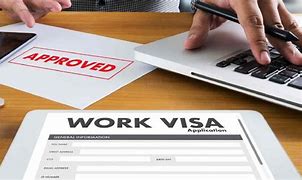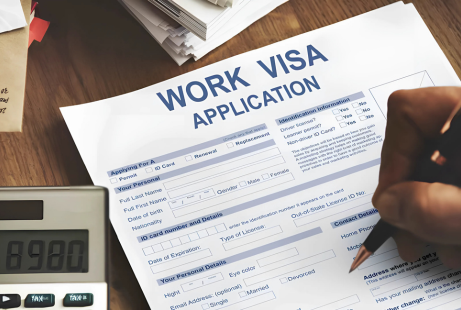Dubai is a leading global employment hub, attracting professionals from diverse industries due to its booming economy, tax-free income, and world-class infrastructure. Many foreign workers seek long-term job opportunities, making it essential to understand the employment visa process. A 2-year employment visa allows expatriates to legally work and reside in Dubai, providing stability and access to public services. However, the costs of obtaining this visa can vary based on factors like employer type, job role, and nationality. Understanding these expenses helps professionals and businesses plan their finances and avoid unexpected costs during the visa application process.
What is a 2-Year Employment Visa in Dubai?

A 2-year employment visa in Dubai is a work permit allowing foreign nationals to legally reside and work in the UAE for two years. It is issued by the UAE government through an employer or company. To be eligible, applicants must have a valid job offer, undergo a medical examination, and meet specific skill or professional criteria. The visa grants rights such as healthcare access, residency, and the ability to sponsor family members. Employers are responsible for processing the visa, covering certain fees, and ensuring the employee’s legal status. Employees must comply with UAE laws and their employment contracts.
Breakdown of Costs for a 2-Year Employment Visa
1. Government Fees:
- Application Fee:
- This fee is paid when submitting the visa application to the relevant authorities. It generally ranges between AED 200 to AED 500, depending on the type of visa and employee category.
- Medical Examination Fee:
- All employees must undergo a medical test before obtaining their visa. The medical test costs can range from AED 300 to AED 700, depending on the service speed (normal or urgent).
- Emirates ID Fee:
- An Emirates ID is mandatory for all UAE residents. The fee for a 2-year Emirates ID typically ranges between AED 270 to AED 400.
2. Visa Processing Fees:
- Labor Fees:
- Labour fees depend on the company classification and the type of employee (skilled or unskilled). The cost can range from AED 200 to AED 5,000.
- Insurance Fees:
- Health insurance is mandatory for employees in Dubai. Basic insurance coverage can cost between AED 650 to AED 1,200 annually, depending on the plan.
- Other Costs:
- This includes service fees for processing, typing centres, and administrative charges. These fees generally range between AED 300 to AED 600.
3. Total Cost Estimate for a 2-Year Employment Visa:
- Based on the above components, the total cost for a 2-year employment visa in Dubai can range between AED 4,000 to AED 7,000. This estimate can vary based on the employer, employee category, and the type of company (mainland or free zone).
4. Additional Costs:
- Renewal Fees:
- After 2 years, employees will need to renew their visa, which incurs similar costs for medical tests, Emirates ID, and labor fees. Renewal costs typically range between AED 2,500 to AED 5,000.
- Employer-Paid Expenses:
- In some cases, employers may cover part or all of the visa costs, including insurance, medical tests, and application fees. This can significantly reduce the employee’s expense for obtaining the visa.
This breakdown provides a clear understanding of the potential costs involved in obtaining a 2-year employment visa in Dubai.
Factors that Affect the Price of the Employment Visa
1. Employer Type (Free Zone vs Mainland Companies):
- Free Zone Companies:
- Companies operating in free zones often have a streamlined visa process, with specific government fees and labour charges. In many cases, free zone companies may cover a larger portion of visa costs, which reduces the expenses for the employee. However, free zone visa fees tend to be higher, with an average range of AED 3,000 to AED 6,000.
- Mainland Companies:
- Mainland companies are subject to different visa processing rules. Labour fees are based on the company’s classification, with higher-rated companies benefiting from lower fees. Mainland companies may or may not cover all visa-related expenses, depending on the employment contract.
2. Employee’s Position or Profession:
- Skilled Workers:
- Skilled professionals such as engineers, managers, or IT specialists typically incur lower visa fees due to favourable labour classifications. Companies often pay a reduced labour fee, which can be as low as AED 200 to AED 1,000.
- Unskilled Workers:
- Unskilled workers, such as labourers or assistants, may have higher labour fees, ranging from AED 3,000 to AED 5,000. Employers may also face higher government fees for hiring unskilled workers, particularly in sectors with strict labour regulations.
3. Nationality of the Employee:
- Preferred Nationalities:
- The UAE government prioritizes certain nationalities based on agreements and labour quotas. For employees from preferred countries, visa fees may be lower, especially for skilled workers.
- Other Nationalities:
- Employees from countries with higher labour restrictions may face additional fees. This can also affect processing times, increasing the overall visa cost. Additionally, visa sponsorship for specific nationalities might require additional documents or government approvals, which can raise the cost.
4. Medical Insurance Requirements:
- Basic Insurance Plans:
- Employers are required to provide at least a basic level of health insurance for their employees. This cost can range from AED 650 to AED 1,200 annually, depending on the employee’s age and medical history.
- Comprehensive Insurance:
- For certain professions or higher-income employees, comprehensive insurance may be required. This can significantly increase the cost of medical insurance, with premiums reaching AED 2,000 to AED 5,000 annually.
5. Sponsorship and Employer Obligations:
- Employer-Sponsored Visa:
- Employers are legally required to sponsor their employees for a visa, which means they take on the responsibility of handling the visa application process. Some employers cover all visa-related expenses, while others may deduct costs from the employee’s salary.
- Employee-Sponsored Visa:
- In certain cases, employees may sponsor family members or dependents. This sponsorship incurs additional costs, which include government fees and medical insurance for the dependents, ranging from AED 2,000 to AED 4,000 per dependent.
Benefits of a 2-Year Employment Visa
- Job Security: Provides long-term employment stability for 2 years.
- Public Services Access: Eligible for healthcare, banking, and housing.
- Family Sponsorship: Ability to sponsor spouse and children for residency.
- Path to Residency: Can renew or apply for long-term residency options.
- Tax-Free Income: Enjoy tax-free salaries in the UAE.
- Career Flexibility: Opportunity to change employers within the visa period.
- Business Opportunities: Access to start a business or invest locally.
- Professional Growth: Work in a global business hub for career development.
- GCC Travel: Easy travel across GCC countries for business or leisure.
How to Apply for a 2-Year Employment Visa in Dubai
- Employment Contract: Secure a job with a Dubai-based employer.
- Employer Sponsorship: The employer initiates the visa application.
- Document Submission: Provide passport, photos, and relevant documents.
- Medical Examination: Complete a medical test.
- Labour Approval: Employer applies for labour approval.
- Entry Permit: Receive an entry permit to enter the UAE.
- Visa Stamping: After arrival, submit documents for visa stamping.
- Emirates ID: Apply for Emirates ID.
- Medical Insurance: Obtain mandatory health insurance.
- Receive Visa: Once approved, receive the 2-year employment visa.
FAQs
1. How long does it take to process a 2-year employment visa in Dubai?
- The processing time for a 2-year employment visa typically takes between 2 to 3 weeks. This includes labour approval, medical tests, Emirates ID application, and visa stamping.
2. Can I switch jobs with a 2-year employment visa?
- Yes, you can switch jobs while holding a 2-year employment visa, but you need your current employer’s approval or a No Objection Certificate (NOC). The new employer must sponsor your visa transfer.
3. Are there hidden fees in the employment visa process?
- Hidden fees may include administrative charges, service fees at typing centres, or extra costs for urgent processing. It’s advisable to ask your employer to clarify what fees they will cover upfront.
4. What happens if my visa is not renewed on time?
- If your visa is not renewed on time, you may face fines of AED 25 to AED 100 per day. Prolonged delays can lead to legal consequences, including deportation. It is crucial to ensure timely renewal.
